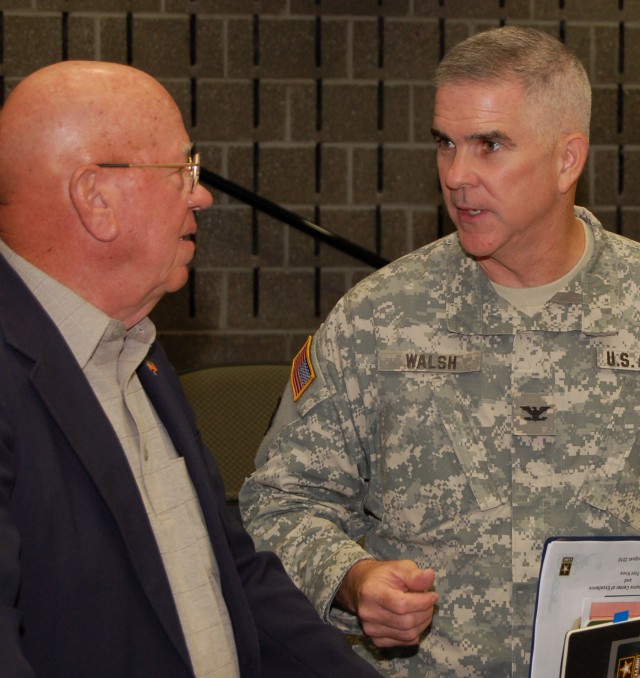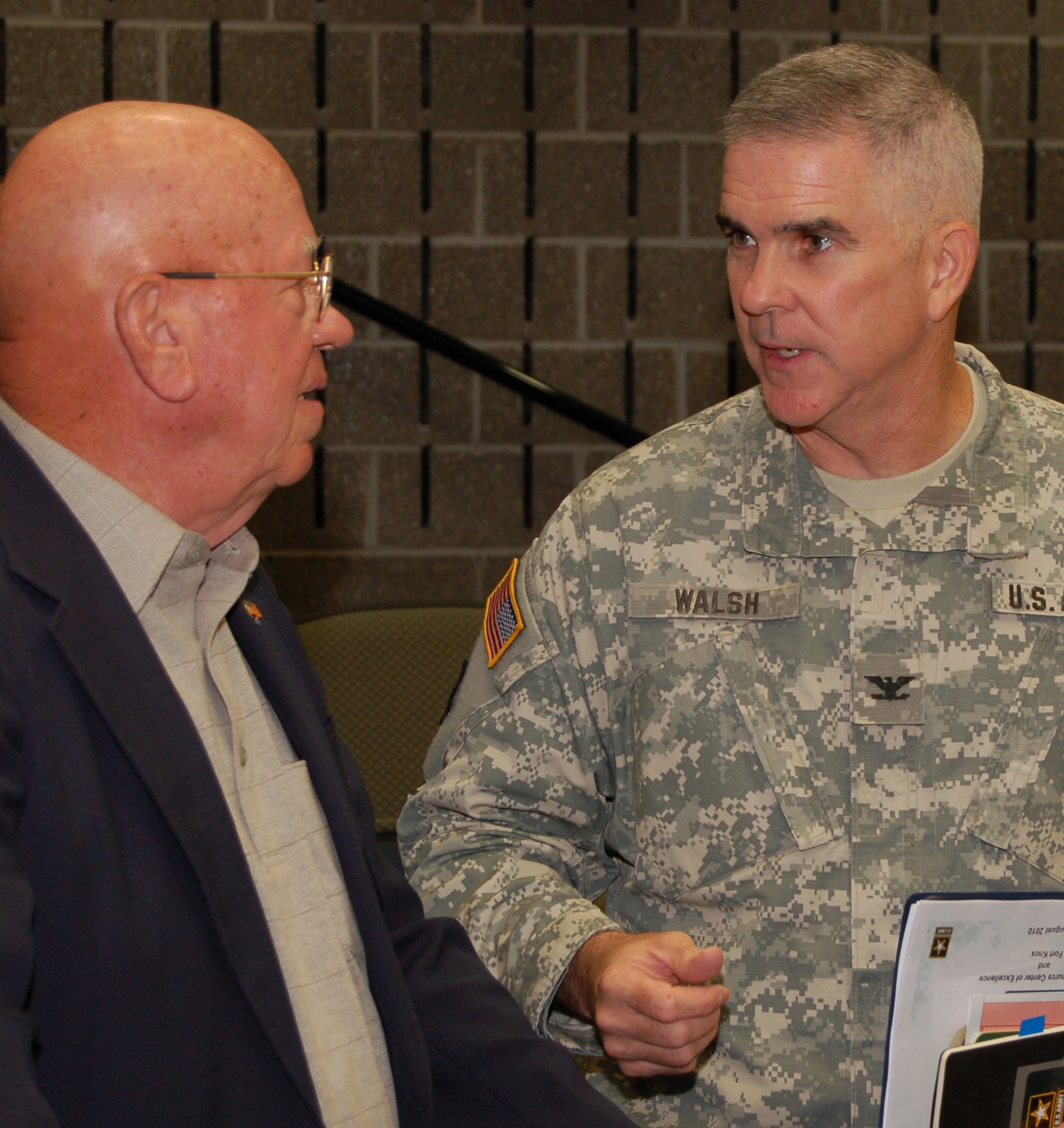More than a dozen former USAREC commanding generals, deputy commanding generals, and command sergeants major - representing three decades of leadership - met Aug. 13 with the command's current leaders to discuss the command's challenges and successes including budget constraints, recruiting efforts, new programs and technology.
The command brings together a group of former USAREC senior leaders every year or two to update them on what's happening within Recruiting Command and to tap into the minds and seek advice from those who've been there, done that in recruiting, who have the luxury of hindsight.
"It's like having the last dozen CEOs of the corporation there to tell you why they made the decisions they made, what they would do if they were in a certain situation, what you could do better and what they learned afterwards as they look back," said Rick Ayer Chief of the Commander's Initiatives Group. "Anything to do with running this command, they've all had to do and been involved with. And hindsight is 20/20. A lot of us look back and say, 'I made the right decision at the time, but in the long run it was the wrong decision and here's why.' Those are the kind of insights you get with a group like this."
During this session the group was briefed on current recruiting numbers and programs, future initiatives, health and wellness issues and transformation.
One of the successes is year-to-date mission accomplishment, which is outpacing the goal. USAREC Commanding General Maj. Gen. Donald M. Campbell Jr. doesn't believe all the credit for making mission goes to the down economy.
"The economy plays a part, but the team that is doing this out in the field has set the bar really high."
Despite the good numbers, U.S. Army Accessions Commanding General Lt. Gen. Benjamin C. Freakley believes efforts need to be made to get Army veterans more involved and vocal about Army service.
"The Marines have got this Marine for Life Program and are mobilized to create the Corps. We are not mobilized," said Freakley. "A 2008 Gallup poll of 40,000 samples asked military veterans about their experience and would they recommend military service to their grandchildren, sons and daughters. [Assuming 40 percent of the respondents were Army vets] only 25 percent of them recommended the Army. Our own veterans don't even push our own service."
He added a lot of Soldiers recommend the Air Force to their children because they don't want their sons and daughters deployed for 15 months compared to the typical Air Force deployment of four months.
According to Ayer, this is an area where the former senior leaders can be of assistance because after they retire from the Army, they go out into communities and assume influential positions, such as ministers, coaches, politicians and corporate leaders.
One of the senior leaders, retired Maj. Gen. Evan Gaddis, USAREC commanding general from 1998 to 2000, is now the president and CEO of the National Electrical Manufacturers Association, which represents about 400 companies in the electrical and medical imaging equipment manufacturing industries. Gaddis said no occupation in the civilian world could ever compare to working with Soldiers and that his heart will always be with the Army.
"I'm always a spokesman out there, I always talk up the Army, and I'm in a lot of forums around the world and all over the United States, so being able to present the Army message I think is always important for many of us who've served.


Social Sharing